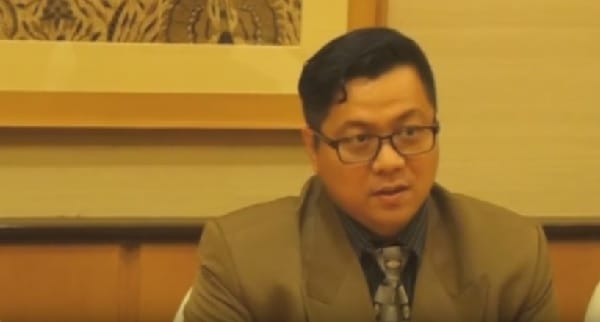Indonesia needs to pave the way in sustainability, says Hendry Predy Yang in this 3-on-3 interview with the SIIA – three questions, three minutes. He is Palm Oil Coordinator (South & South East Asia) for the Solidaridad Network, an international NGO facilitating the development of socially responsible, ecologically sound and profitable supply chains. He was in Singapore for the 3rd Singapore Dialogue on Sustainable World Resources organised by the SIIA.
Q. What is InPOP and why is it important?
A. InPOP is actually, I would call it a platform, established by our government, the Ministry of Agriculture, in 2014. It is actually a platform to absorb many inputs and of course the expertise in coming up with the sustainability definitions, and I think that platform is very useful for us, it is made up of different civil society organisations, government, private sector most importantly, and also some experts in fields of sustainable palm oil. That being said, we are looking at generating a national action plan. Indonesia is the biggest producer, also consumer (of palm oil) right now, it should be paving its way in some kind of master plan to achieve sustainability, especially by 2020 or even earlier.
Q. To what extent are the problems faced by smallholders unique to Indonesia?
A. We (Solidaridad Network and smallholders) are made up of different communities. Some of them are actually non-palm oil, but because of the plus point in terms of monetising from the palm oil sector is so alluring, they’ve switched to palm oil. What I’m trying to say is, the first thing is the knowledge is not there – they just kind of do by mistake, learn from experiences, I’d say in my project, an area made up of mostly rubber farmers, they have just switched to palm oil without having sufficient technical knowledge. And there is of course land title issues, which is of course classic to Indonesia, because somewhere, some part of the national government is giving concessions, but part of the district might have already been populated by a certain community, and switching that is naturally a problem. The third point is, there is a lot to be done in terms of paving the way to sustainability. They have basically no existing knowledge of what ‘sustainable’ actually means. And we, as community working personnel, have to engage with them and explain how it benefits the environment and eventually benefits themselves.
Q. From your experience, what can be done to encourage small and mid-sized holdings to be more sustainable?
A. I’m bringing this from the Indonesian point of view. I think we do have a sustainability system that is called the ISPO, which is Indonesian Sustainable Palm Oil – so what we need to do with these small and medium sized companies is to bring them one step at a time, I would say to mentor them, because it is unfortunate to say, a startup company might have profit-oriented visions, not sustainability-oriented, so what we have to do is to walk them through, in the case that they have to be compliant with ISPO, we do have to guide them, step by step, changing business as usual to environmental practices, and then walk them through – first, of course, achieve ISPO, and then see if a higher level, some kind of opportunity is there for, for example, RSPO.




